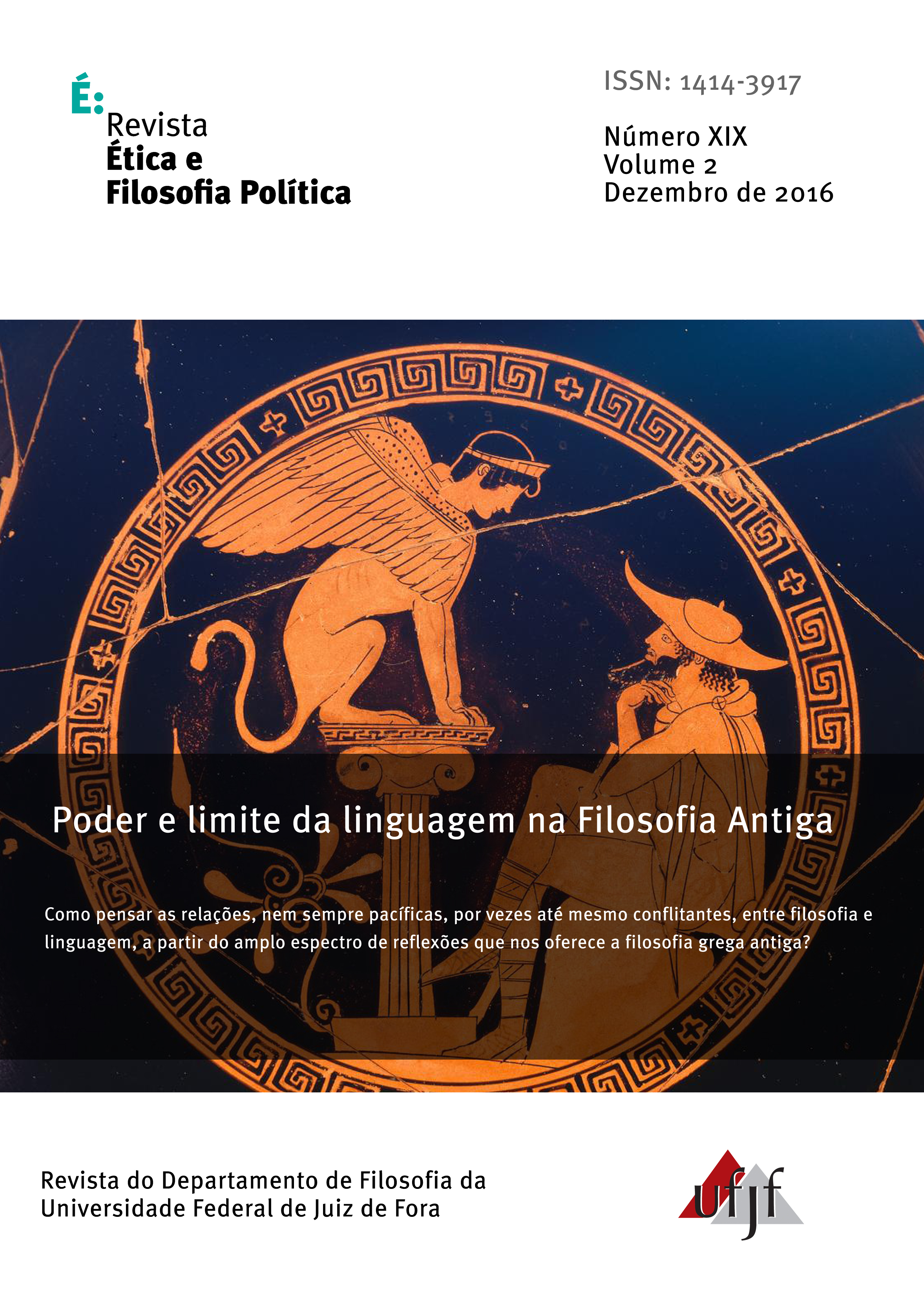ORALITÉ ET ÉCRITURE : UNE LECTURE DE LA LETTRE VII PAR FRANCO TRABATTONI
DOI:
https://doi.org/10.34019/2448-2137.2016.17631Resumo
The Seventh Letter is among the thirteen letters of Plato, the one considered by many commentators as truly attributable to the philosopher, and, above all, the one that presents the exemplary efforts and the failure of a man who, not wishing to be taken for himself as a “big talker”, is committed to advising a man of power. In this singular account, Plato talks in the first person and describes himself in action. But the interest of this epistula remains above all in its content: the questioning of the practice of philosophy is accompanied by that of the transmission of knowledge. These subjects are at the heart of Franco Trabattoni’s reflections in Scrivere nell’anima and La verità nascosta: his original reading of the Letter is compared here with other hermeneutical perspectives. To interrogate the Seventh Letter is to situate oneself in relation to the essential questions of the problem of writing, which intersects with that of the elements that determine our knowledge and with the relativity of communication tools. To do this, this paper draws a brief historical overview of the tortuous development of writing and its reception. Next, it is above all the excursus that the article analyses, detecting the reasons underlying the Platonic prohibition of fixing philosophical truth in a doctrine. Finally, if the Seventh Letter highlights the weakness of the logos, there are (rare) conditions that could give rise to true knowledge: this will include sparks of persisting flames and, above all, a non dogmatic Plato.Downloads
Não há dados estatísticos.
Downloads
Publicado
2018-08-06
Como Citar
Gangemi, R. (2018). ORALITÉ ET ÉCRITURE : UNE LECTURE DE LA LETTRE VII PAR FRANCO TRABATTONI. Revista Ética E Filosofia Política, 2(19). https://doi.org/10.34019/2448-2137.2016.17631
Edição
Seção
Artigos




